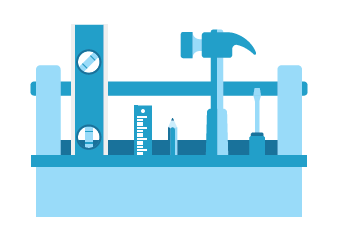In 2019, HBF launched an awareness campaign for mental health in the home building industry, designed to encourage its members to support their workforce's mental health.
Get Involved with the campaign
1. Sign the Building Mental Health Charter
This first step sets out a commitment to supporting the mental health of employees and tackling the stigma associated with mental illness.
2. Signpost to support

View our mental health awareness resources page to discover essential resources and initiatives your organisation can signpost to.
Communicating places to find support and advice is a crucial step in supporting your workforce.
3. Deliver A Toolbox Talk
A Tool Box Talk is a fantastic way to deliver information to your workforce on mental health by educating them on the signs to look out for and how to start a conversation.
View our mental health resources to download our toolbox talk.
4. Offer Mental Health Awareness Training

Encourage your staff to attend training sessions to receive in-depth training about understanding mental health and identifying the warning signs of deteriorating health in employees, allowing pre-emptive measures to be taken.
View our mental health resources to discover the training available to the industry.
5. Develop Mental Health First Aiders

A Mental Health First Aider (MHFA) is the dedicated person to go to for anyone experiencing some form of mental health issue. They are trained to recognise the symptoms of mental health and can guide those in are in need before it issues escalate.
Visit MHFA England for more information.
Click here to find some helpful Mental Health Resources
